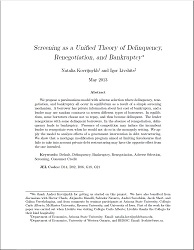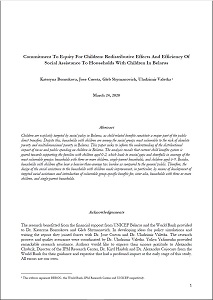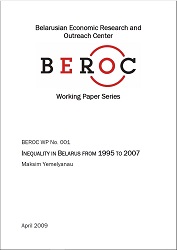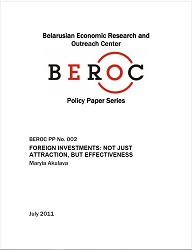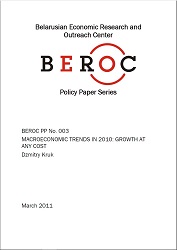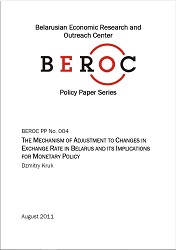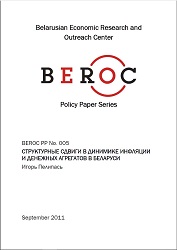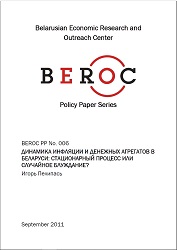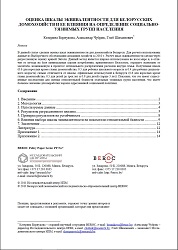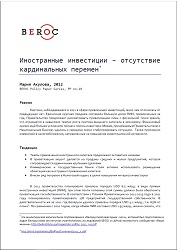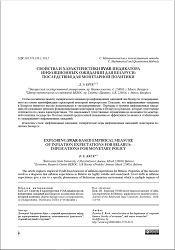
Exploring SVAR-based empirical Measure of Inflation Expectations for Belarus: Implications for Monetary Policy
Свойства и характеристики SVAR-индикатора инфляционных ожиданий для Беларуси: последствия для монетарной политики
Keywords: inflation expectations; empirical measures of inflation expectations; monetary policy; Belarus;
This article explores empirical SVAR-based measure of inflation expectations for Belarus. Properties of this measure result in a diagnosis that inflation expectations in Belarus are highly volatile and unanchored. Level shifts in inflation expectations give a rise to a specific phenomenon of Belarusian monetary environment which is multiple regimes of functionality with severely different properties. This sensitively restricts the effectiveness of monetary policy in the country. Hence, stabilizing inflation expectations at a reasonably low level and anchoring them is argued to be an important precondition for effective monetary policy in Belarus.
More...
